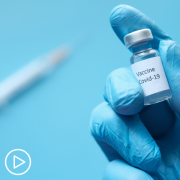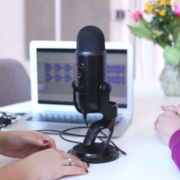Assessing Untreated AML Patients Who Are Ineligible for Intensive Chemotherapy
Assessing Untreated AML Patients Who Are Ineligible for Intensive Chemotherapy from Patient Empowerment Network on Vimeo.
How are acute myeloid leukemia (AML) patients assessed for intensive chemotherapy? Dr. Catherine Lai from Penn Medicine explains eligibility criteria. Learn factors that impact patient eligibility and treatment options for AML patients who are categorized as ineligible for intensive chemotherapy.
[ACT]IVATION TIP from Dr. Lai: “Talk with your physician about how they will determine whether or not you are fit or unfit for intensive chemotherapy.“
Download Resource Guide en español
Related Resources:

What AML Treatment Options Are Available for MRD-Positive Patients? |

|

|
Transcript:
Art:
Okay, Dr. Lai, what are we learning about patients with untreated AML who are ineligible for intensive chemotherapy?
Dr. Catherine Lai:
To define ineligible for intensive chemotherapy, I think that that is a moving target because historically, we would define patients as eligible for intensive or less intensive chemotherapy based on an age cut-off. And as the population is becoming more fit and is also getting older, what I would like to say is that we should use physiologic age, not chronologic age to determine who is eligible for intensive chemotherapy, and that is…in terms of how that is assessed, that is not uniformly done.
But, in general, it takes into account how active a patient is and what they’re able to do on a day-to-day basis, so mostly their physical function, we also take into consideration their cognitive function as well, but to a lesser extent.
So, for patients who are ineligible for intensive chemotherapy, the standard practice would be the combination of azacitidine (Onureg or Vidaza) or decitabine (Dacogen), both of which are hypomethylating agents in combination with venetoclax (Venclexta), and that combination has really changed the landscape in terms of how we treat patients, it can be given as an outpatient, so it’s much better tolerated and has fewer side effects compared to intensive chemotherapy.
So the activation tip here is to talk with your physician about how they will determine whether or not you are fit or unfit for intensive chemotherapy.










